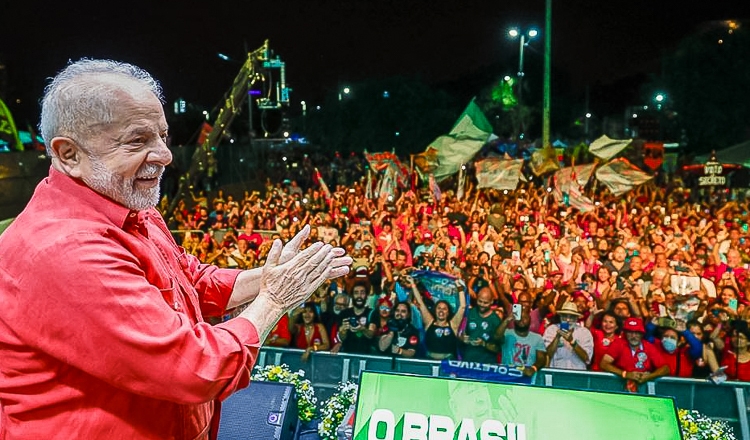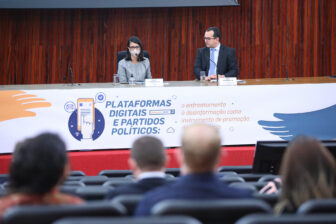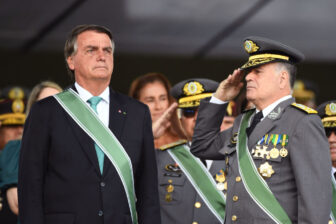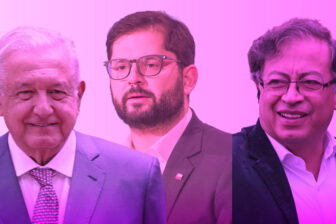This article has been updated.
RIO DE JANEIRO/NOVA IGUAÇU – The rallies were separated by 24 hours, 30 miles—and an apparent enthusiasm gap between the two crowds. Last week in Brazil, I attended campaign events for both President Jair Bolsonaro and the leader in polls, former President Luiz Inácio Lula da Silva, and also met a variety of figures in politics, business and the military. The takeaway: This election remains unpredictable in many ways, and may already be closer than some polls suggest.
The Bolsonaro event, held on September 7 on Rio de Janeiro’s Copacabana Beach, was the more closely watched of the two rallies, given concerns the president would use the 200th anniversary celebrations of Brazil’s independence to stage a new attack on its democratic institutions. In the end, there was no coup, but there was plenty of spectacle: The Air Force’s “Smoke Squadron” conducted dramatic low-altitude flyovers, trailing the blue, yellow and green colors of the Brazilian flag, paratroopers parachuted onto the sand, and the historic Copacabana Fort fired a cannon shot every hour, thrilling the crowd. Military officials insisted in public and in private that none of this was meant as a partisan show of support for Bolsonaro. But the public clearly believed otherwise—and that may be significant in weeks ahead. “It’s so cool!” gushed Milton Garcia, a 38-year old who brought his kids to the rally, dressed in matching “God, Country, Family” campaign T-shirts. “The Armed Forces are on the side of good.”
I have written elsewhere that I believe Bolsonaro will do everything in his power to avoid giving the presidency to Lula, including forcing an institutional crisis should he lose the vote in October. What most struck me at the rally, as I spent five hours talking to Bolsonaro supporters, was their nearly unanimous belief that “the coup already began,” and it’s the other side that is acting undemocratically. In their view, Bolsonaro is the victim of a conspiracy by Brazil’s “leftist” institutions, particularly the Supreme Court. “We’re not on the side of Venezuela, or on the side of Nicaragua,” Bolsonaro told the crowd. “It’s the other side … that doesn’t respect the Constitution.” The obvious potential next step in this narrative: If the left has already sabotaged democracy, then whatever Bolsonaro does following the election will be justified, including refusing to recognize the result.
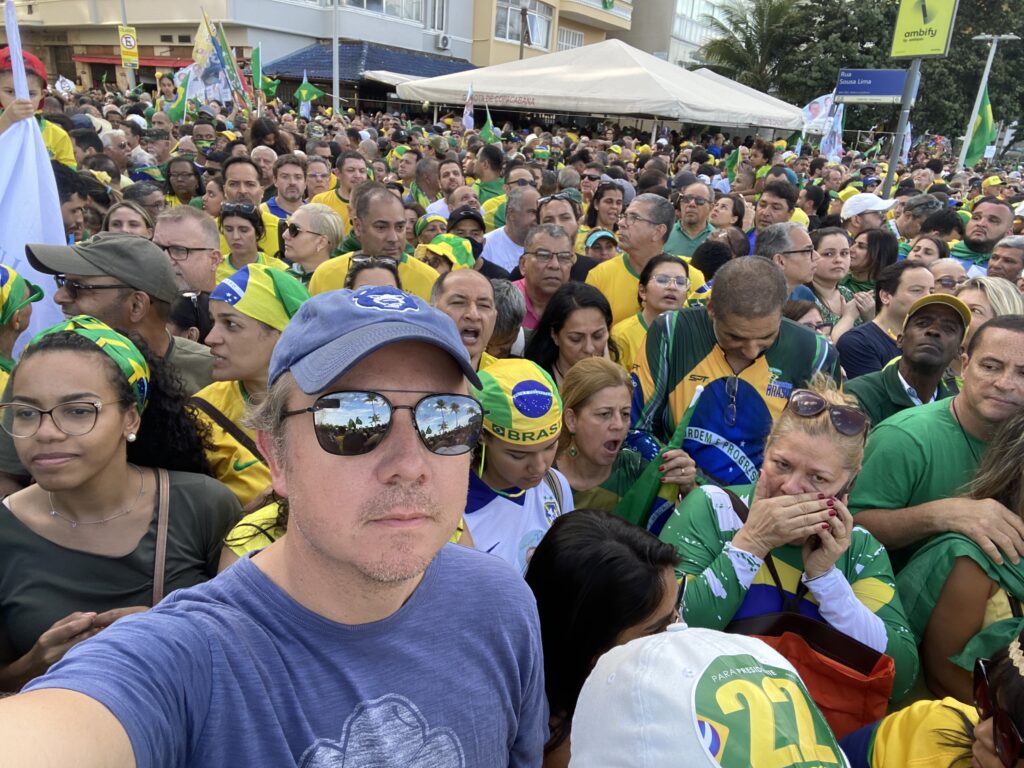
Whether it will come to that remains uncertain. Almost everywhere I went, I heard optimism about the economy. Salespeople, bankers, household workers—and, yes, even a few people at the Lula rally—said things seemed to be moving in the right direction. To be sure, there is still unacceptable misery in Brazil, a legacy of a decade of economic stagnation and, more recently, the pandemic. Hunger is estimated to afflict 33 million Brazilians, and homelessness is very visible in major cities. But GDP is now expected to grow 2.5% in 2022, vastly better than the 0.3% average forecast at the start of the year. Inflation, to which Brazilian voters are historically very sensitive, has fallen back below 10%, while unemployment is at its lowest level since 2015. This is not a miracle: Bolsonaro has flooded the economy with stimulus and subsidies, at the likely cost of future growth. But that is an election-year game that Lula and his Workers’ Party (PT) also used to play, and it’s one reason why an incumbent president has never lost an election in Brazil.
Many polls suggest Bolsonaro is in fact slowly closing the gap, though he remains six to 15 percentage points behind Lula as the first round of voting on October 2 quickly approaches (a runoff, if necessary, would happen October 30). Major polls have a pretty good track record in Brazil. So I was surprised to hear serious people raise doubts this time around. One executive at a polling firm told me he believes the margin could be just half what his company’s own poll shows, due in part to bolsonaristas hiding their true intentions from institutions they believe to be biased. Another issue: There hasn’t been a census in Brazil since 2010 because of the pandemic. That means that for two critical demographic groups, those earning less than two minimum salaries per month (Lula’s base) and Evangelical Christians (Bolsonaro’s base), pollsters are essentially flying blind when it comes to weighting their importance in the overall sample. Polling earlier this year in Chile’s recent constitutional plebiscite, and Colombia’s presidential runoff, proved inaccurate possibly for similar reasons.
In the meantime, we are left to rely upon our eyes and ears. Which brings me to the Lula rally. It took place on the side of a road in Nova Iguaçu, a working-class industrial suburb of Rio. I’ve attended probably two dozen PT campaign rallies over the years as a reporter and columnist, dating back to 2006. This one struck me as the least energetic, and the most tense. Part of the crowd was frisked upon entry, and enclosed by tall metal barricades. The people on stage were mostly the same PT leaders from the 2010s and even 2000s: Aloízio Mercadante, Benedita da Silva, Gleisi Hoffman … even former President Dilma Rousseff, whom many voters still blame for the economic meltdown of the mid-2010s, made an appearance. Lula spoke well, as he almost always does. But the crowd seemed curiously muted, as if watching a TV show they’d seen before. Which, of course, many of them had.
Does it matter? I’m not sure it does. Much of Lula’s working-class base is too busy to attend a rally at 5 pm on a Thursday. Rio has always been challenging territory for the PT. If Bolsonaro threw a more entertaining and better attended party, well, he did so on a federal holiday, on Brazil’s postcard beach, with the full budgetary might of the Armed Forces behind him. And as often happens in today’s Brazil, there is a possible parallel with the United States. Throughout the 2020 campaign, it was Donald Trump who had by far the bigger, more spectacular campaign rallies, while Joe Biden was famously “hiding in his basement.” But Biden won anyway, as voters chose the unexciting yet familiar candidate who represented a certain return to normalcy. Most Trump supporters simply couldn’t believe the result, and many refused to accept it. We’ll soon know if that history repeats itself, too.
This article was updated to provide a fuller picture of Brazil’s economy, including an estimate of those afflicted by hunger.



